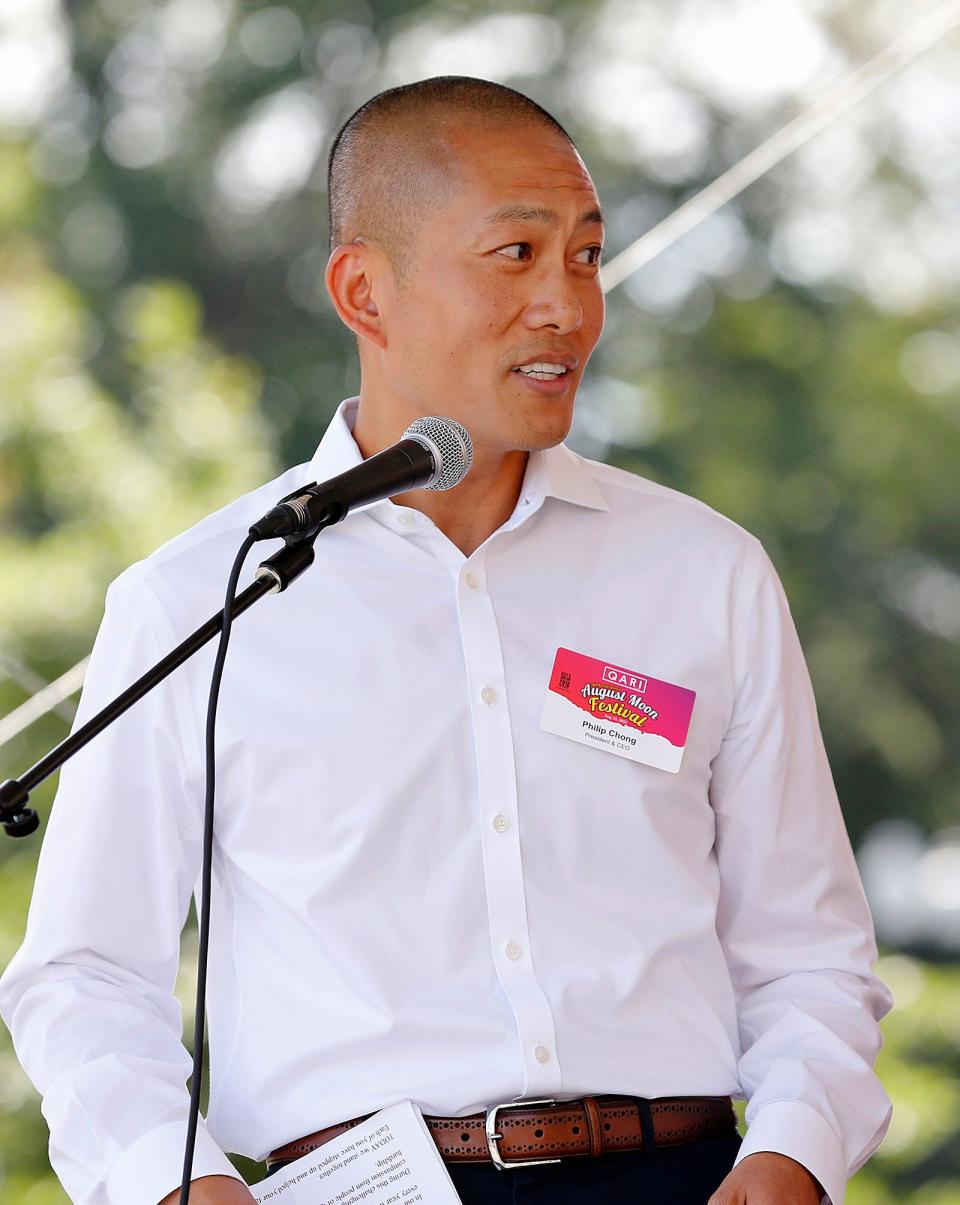Quincy advocates support renewed push to break language barriers at State House
BOSTON − As Quincy waits for Beacon Hill to advance legislation intended to improve language access to state-funded programs, local officials are trying to help break those barriers closer to home.
State Rep. Adrian Madaro, D-Boston, and state Sen. Sal DiDomenico, D-Everett, have filed legislation that would require agencies running state-funded programs to translate their websites and documents − as well as provide oral interpretation services − for non-English speakers.
The agencies affected would include the Department of Unemployment Assistance, MassHealth and the Department of Children and Families.
At a recent news conference, lawmakers and activists said 1 in 10 state residents are considered to have limited English proficiency, which they cite as the critical reason for the bill. In Quincy, nearly 38% residents speak a language other than English at home, according to census data.
Diversity deficiency: Does town hall reflect the South Shore in race, gender and ethnicity?
'Easy to target them': Man sentenced in 2021 robbery amid recent Quincy attacks on Asians
State Rep. Tackey Chan, D-Quincy, said he supports the bill and hopes it makes it to the governor's desk.
“I am very supportive of any way to increase government access for all people, including linguistic access,” said Chan. “We want people to have government access and we want accurate data on who is coming to get it because policymakers need to know the numbers of people needing services. Our public policy should reflect what is really going on in the world."
As communities such as Quincy become more diverse, local organizations such as Quincy Asian Resources Inc. say the bill is critical for civic engagement between the non-English-speaking population and state government.

“Language access is also a springboard for people to be more engaged in our Legislature, in our government. And to be part of it means they can voice their thoughts,” said Philip Chong, president and CEO of Quincy Asian Resources.
Chong said Quincy’s population has changed in the last decade. A third of the population is now made up of Asian Americans and the overall population has grown from 90,000 to over 100,000.
“The biggest barrier (to language access) is the state government," Chong said. Bills, laws and debates are in English and aren’t translated into other languages, "so if you don’t speak English, then you don’t know anything,” he said.
More: Quincy man indicted after allegedly hitting man with car, yelling 'Go back to China'
'I am not happy': Quincy to spend extra $23 million on new police station
On the local level, Chong said his organization recently partnered with the City of Quincy to create a program that provides language translation and interpretation training. Because the bilingual population is substantial, the city created a system that trains people in different languages to help non-English speakers.
“During teacher-parent day at school, the trainers can provide interpretations for parents that don’t have language access but need to know how their kids are doing,” Chong said.
The city also provides documentation in languages such as Chinese, Vietnamese and other languages for message about trash pickup day, new policies and important dates.
Chan, who is the first Asian American to represent the South Shore in the State House, said he has filed a bill that would require state entities to collect data and ensure information is reflected on each ethnic group living in the state.
“When you break down Asians into different ethnic groups, you find enormous disparities among them,” said Chan. “This also impacts Latino communities, where there is a large diversity of ethnic groups, and the Black and African community, where there is also a lot of diversity. ... If we know who is looking for help and what the barriers are for them getting help, (then) policymakers can make a better decision of how to break those barriers down."
Chan said lawmakers ran out of time last session to consider the bills.
Thanks to our subscribers, who help make this coverage possible. If you are not a subscriber, please consider supporting quality local journalism with a Patriot Ledger subscription. Here is our latest offer.
This article originally appeared on The Patriot Ledger: Local lawmakers renew push to break language barriers at State House

